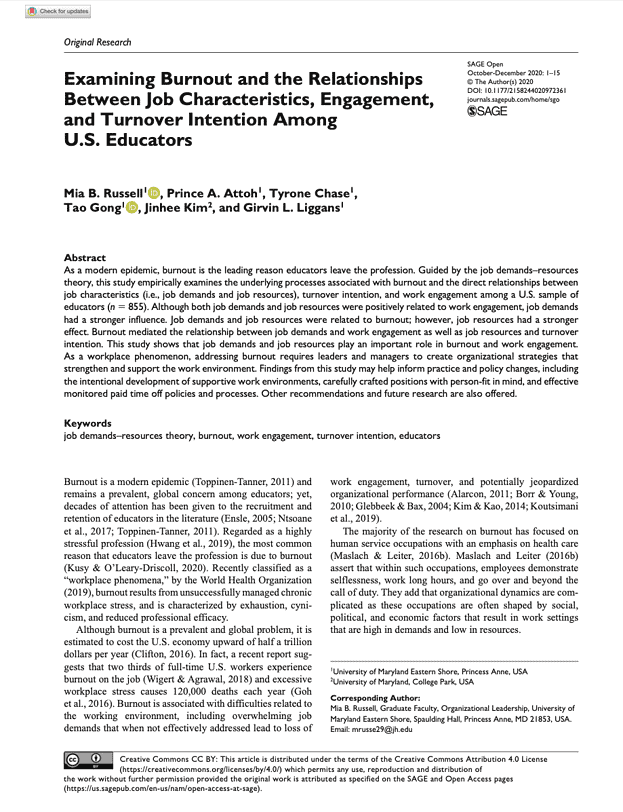Abstract
As a modern epidemic, burnout is the leading reason educators leave the profession. Guided by the job demands–resources theory, this study empirically examines the underlying processes associated with burnout and the direct relationships between job characteristics (i.e., job demands and job resources), turnover intention, and work engagement among a U.S. sample of educators (n = 855). Although both job demands and job resources were positively related to work engagement, job demands had a stronger influence. Job demands and job resources were related to burnout; however, job resources had a stronger effect. Burnout mediated the relationship between job demands and work engagement as well as job resources and turnover intention. This study shows that job demands and job resources play an important role in burnout and work engagement. As a workplace phenomenon, addressing burnout requires leaders and managers to create organisational strategies that strengthen and support the work environment. Findings from this study may help inform practice and policy changes, including the intentional development of supportive work environments, carefully crafted positions with person-fit in mind, and effective monitored paid time off policies and processes. Other recommendations and future research are also offered.



Responses